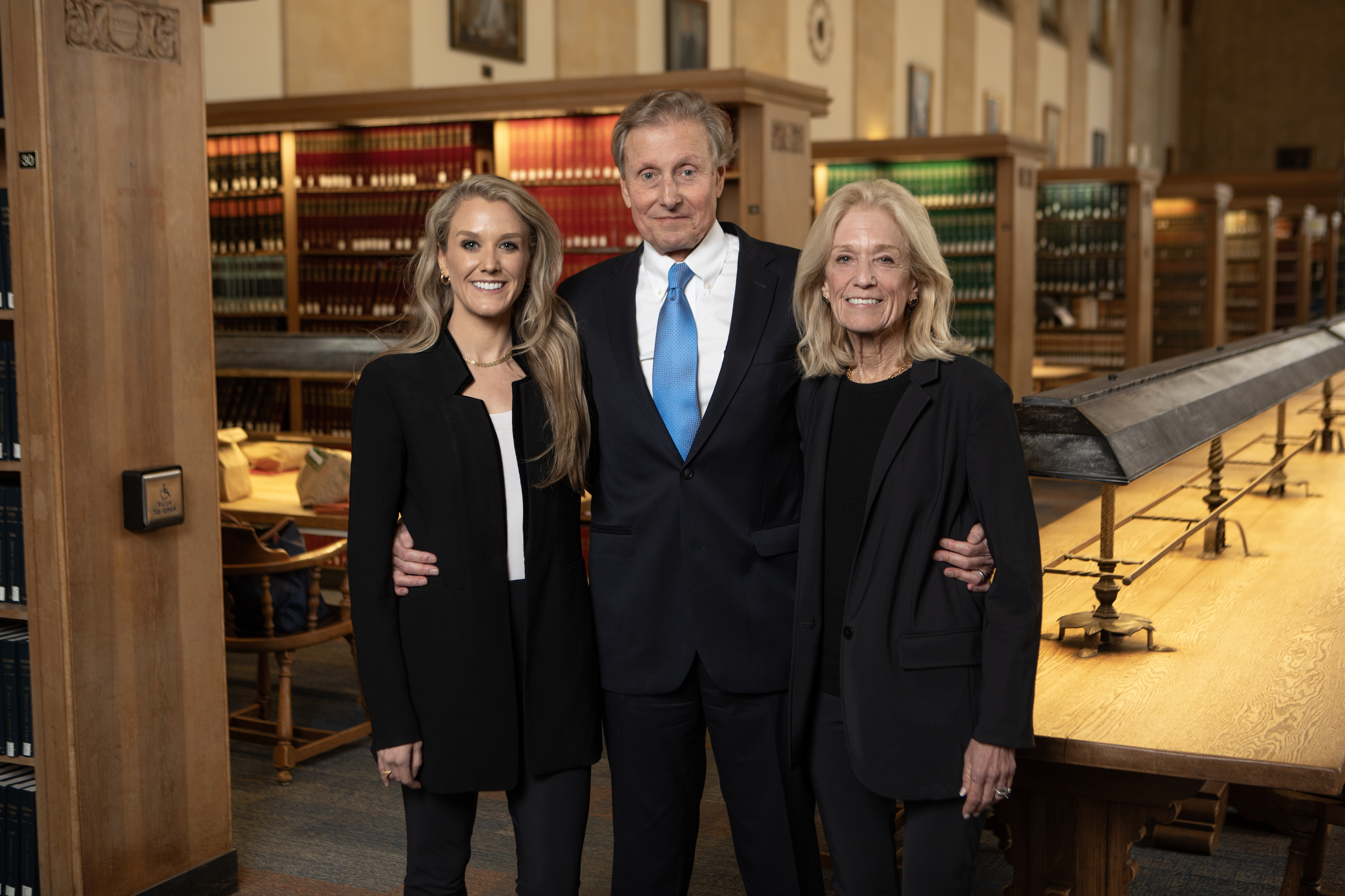This website uses cookies
We use cookies to ensure that we give you the best experience on our website. If you continue to use this site we will assume that you are happy with it.

In the fall of 1973, F. Gregory Barnhart ’76 arrived at Cornell Law, determined to become a trial lawyer. He was in the first generation to study with Faust Rossi and Irving Younger, pioneers of a new way to teach trial advocacy—plus, he was in the right place to meet Susan L. Gordon ’76, who would become his wife. Forty-four years later, daughter F. Stephanie Barnhart ’20 followed in their footsteps, and early this spring, Greg and Stephanie returned to campus to share their experience, presenting “From Cornell to the Courthouse” in the MacDonald Moot Court Room as part of the Dean’s Distinguished Lecture Series.
“To stand here and read the list of accolades for Greg and Stephanie would easily take up the whole hour,” said Jens David Ohlin, Allan R. Tessler Dean and Professor of Law, opening the program on March 20. “Greg is celebrated for his exceptional prowess in the courtroom and widely regarded as one of the preeminent trial lawyers of our time, with 106 million-dollar-plus verdicts and settlements for his clients in cases of personal injury, product liability, auto and truck collision, medical malpractice, and aviation and railroad disasters. Stephanie is the next generation of Barnhart trial wizards, an associate at Searcy Denney, and an integral part of the Law School community.”
Greg’s path started at twelve years old, when he watched To Kill a Mockingbird and decided that’s what he wanted to do for a career. He came to Cornell Law, where he found his way to Irving Younger (“the most mesmerizing speaker I ever saw in my life”), Faust Rossi (“who was just as good”), and life as a plaintiff’s attorney. “We primarily represent people who have been injured, and that gives you immense creativity,” said Greg, senior partner at Searcy Denney Scarola Barnhart & Shipley. “You’re the prosecutor. You have the burden of proof. It’s your strategy that moves the case forward, and when the judge says, ‘Plaintiff, are you ready?” there’s no answer other than ‘Yes.’”
In the years since graduation, that ‘yes’ has taken him to court for the plaintiff in a multimillion-dollar verdict against R.J. Reynolds and Phillip Morris, for the defense in Bush v. Gore, and back to Cornell to teach a two-week intensive in Trial Advocacy. By then, Stephanie was navigating a path of her own, first to trial advocacy with Keir Weyble, then to international law with Dean Ohlin, the Moot Court Board, the New York Pro Bono Scholars Program, clerkships with Hon. Robert M. Gross ’76 and Hon. Martha C. Warner in Florida’s Fourth District Court of Appeals, and finally to her father’s law firm in West Palm Beach.
Within the first five months at the firm, she co-tried a medical malpractice trial, earning praise from the presiding judge and opposing counsel. “I can’t believe how much I have learned since I joined the firm,” said Stephanie. “At times I still struggle because there is so much to absorb. But, if trial work is what you want to do, you just have to keep pushing forward.”